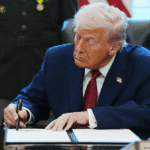Pakistan’s Inflation Soars to 31.4%: A Deep Dive into the Economic Crisis
In recent times, Pakistan has been grappling with a severe economic crisis, with one of the most pressing concerns being the soaring inflation rate, which has reached a staggering 31.4%. This alarming increase in inflation has far-reaching implications for the country’s economy and its citizens, making it a topic of significant importance for students preparing for government exams. In this article, we will delve into the reasons behind this economic crisis, its historical context, and five key takeaways that every aspiring candidate should be aware of.

Why this News is Important
1. Economic Instability and Public Welfare: The unprecedented surge in inflation has direct implications for the public’s welfare. As prices of essential goods and services skyrocket, the cost of living becomes unbearable for many citizens, leading to increased poverty and hardships. This issue is central to government positions, as public welfare is a key responsibility.
2. Government Policies and Reforms: Understanding the causes of inflation is vital for government officials, especially those aspiring to positions in economics-related departments. This news highlights the need for effective policies and reforms to stabilize the economy.
Historical Context
The roots of Pakistan’s economic crisis can be traced back to various factors, including political instability, inadequate fiscal policies, and external debt burdens. Over the years, the country has struggled with mismanagement of resources, inefficient taxation systems, and corruption, all of which have contributed to the current economic turmoil.
Key Takeaways from “Pakistan’s Inflation Soars to 31.4%”
| Serial Number | Key Takeaway |
|---|---|
| 1 | Pakistan’s inflation has reached a record 31.4%, impacting public welfare significantly. |
| 2 | The crisis highlights the need for effective government policies and reforms to stabilize the economy. |
| 3 | Inflation’s impact on budget planning and fiscal policies necessitates prudent resource allocation. |
| 4 | The crisis may influence international trade relations, requiring attention in foreign affairs and trade departments. |
| 5 | Rising inflation can lead to social unrest and security concerns, emphasizing the role of police and defense personnel. |
Important FAQs for Students from this News
Q1: What is the current inflation rate in Pakistan?
A1: The current inflation rate in Pakistan is 31.4%.
Q2: Why is high inflation a matter of concern for government exams?
A2: High inflation is a matter of concern because it has significant implications for public welfare, economic stability, budget planning, and international relations, which are often important topics in government exams.
Q3: What are the historical factors contributing to Pakistan’s economic crisis?
A3: Historical factors include political instability, mismanagement of resources, inefficient taxation systems, external debt burdens, and corruption.
Q4: How does inflation affect the cost of living?
A4: Inflation leads to a rise in the prices of essential goods and services, making the cost of living more expensive for citizens.
Q5: What role do police officers and defense personnel play in addressing social unrest caused by inflation?
A5: Police officers and defense personnel are responsible for maintaining law and order, which becomes crucial during times of social unrest triggered by economic crises like inflation.
Some Important Current Affairs Links

















